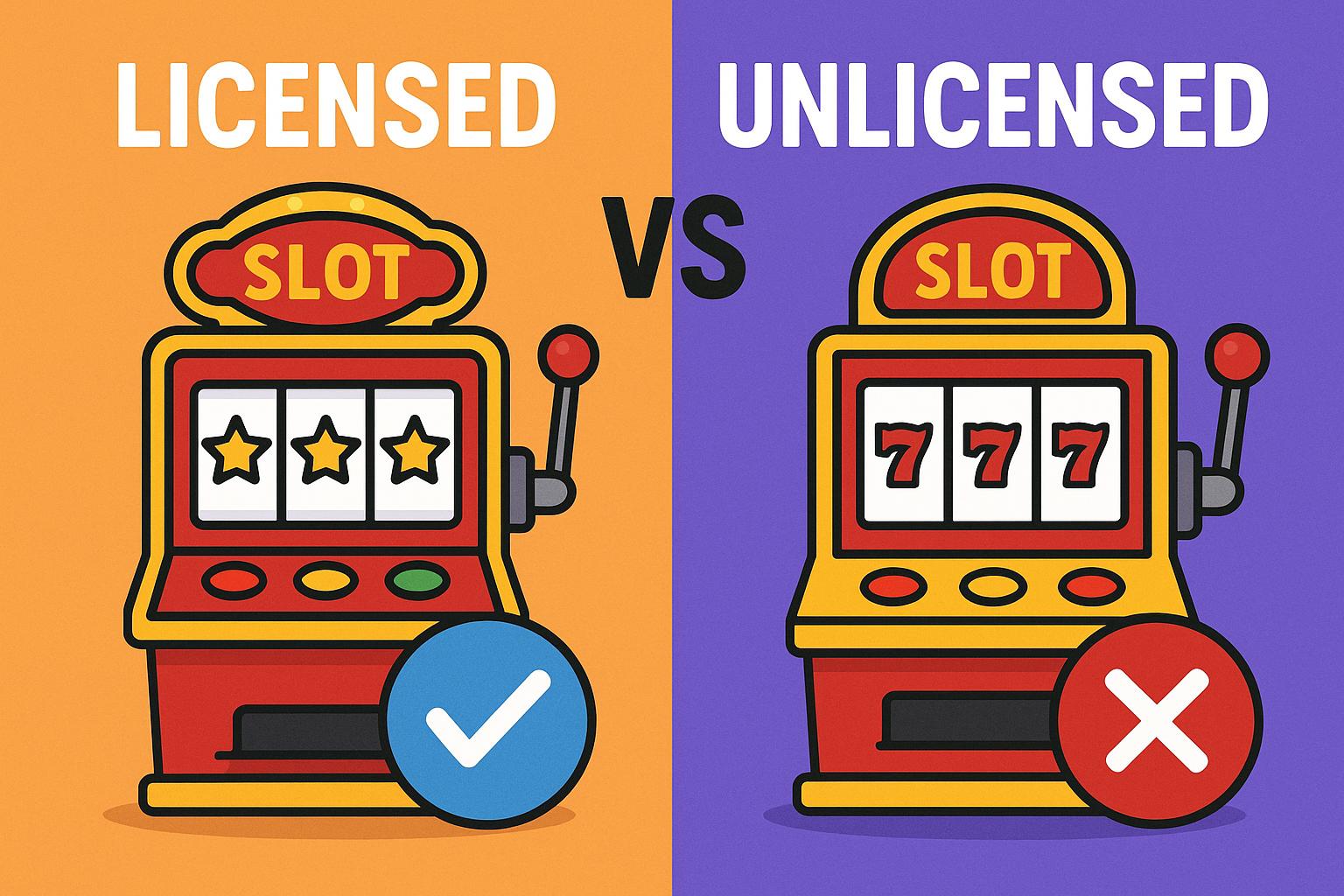Understanding Licensed and Unlicensed Slot Games
When diving into the world of slot games, it is crucial to differentiate between licensed and unlicensed games. This distinction impacts not only the quality and reliability of the gaming experience but also the level of trust one can place in the game provider. With the rapid growth of online gambling, making informed decisions requires understanding these categories to ensure a secure and fair gaming environment.
Defining Licensed Slot Games
Licensed slot games are those that have received official authorization from recognized gambling authorities. These authorities ensure that games meet specific standards, providing assurance of a fair gaming environment. Among the most respected licensing bodies are the UK Gambling Commission and the Malta Gaming Authority. These entities not only regulate the operations of online casinos but also serve as a testament to the reliability of their games.
Transparency is a hallmark of licensed slot games. A significant aspect of this transparency is the disclosure of their return-to-player (RTP) rates, which are typically available to players. Additionally, they use Random Number Generators (RNG) that are frequently audited by third parties. These audits are crucial, as they ensure the unpredictability of game outcomes, thereby guaranteeing players a fair chance of winning.
The Traits of Unlicensed Slot Games
Unlicensed slot games, in contrast, operate without the oversight of official gambling authorities. This absence of regulation introduces various risks that may not be evident at first glance. The lack of a governing body’s checks and balances can cast significant doubt on the fairness, security, and integrity of these games.
These games might forego the use of reliable RNG systems or diverge from industry-standard RTP rates. Without the rigor imposed by licensing bodies, game providers are not obligated to adhere to protocols and standards that ensure fairness. As such, players have little recourse if they encounter issues or unfair practices.
Security Concerns
Security is a pressing concern with unlicensed slot games. The risk of personal and financial information being mishandled is higher in such scenarios. Regulatory oversight often extends to the safeguarding of player data. Licensed games are required to follow stringent data protection protocols, alleviating the players’ concerns about their information security.
In contrast, unlicensed games may not prioritize data security, leaving players vulnerable to data breaches or fraudulent activities. This security lapse makes it crucial for players to choose games overseen by recognized authorities.
A Quality Comparison
When it comes to the overall gaming experience, licensed slot games generally offer a higher quality. Developers such as NetEnt and Microgaming are known for their investment in graphics, themes, and sound design. They produce engaging and immersive games because they operate within regulatory frameworks that encourage fair competition and innovation.
Unlicensed games may not invest the same level of resources into development. Consequently, the experience may be inconsistent and less engaging. The lack of regulation can result in games that are not subject to quality checks and improvements, affecting the user’s enjoyment.
Making Informed Choices
Ultimately, choosing between licensed and unlicensed slot games hinges on the player’s priorities. Those who value security, fairness, and transparency are likely to opt for licensed options. Researching the game and its developer can also provide insight into the legitimacy of a slot game. By looking into the background and reputation of game developers, players can make informed decisions about where to place their trust.
In conclusion, understanding the differences between licensed and unlicensed slot games is crucial for those looking to engage with online gambling responsibly. Ensuring a fair, secure, and enjoyable experience starts with making informed decisions about the sources of entertainment one chooses to engage with. The assurance provided by licensed games not only enhances the gaming experience but also enables players to participate without undue concerns regarding the integrity and security of their information.
Moreover, players can avoid potential pitfalls associated with unlicensed games by being informed. Creating awareness among players about the significance of licenses will contribute to a safer and more enjoyable gaming environment. Ultimately, the goal should be responsible gambling, supported by a strong foundation of knowledge and cautious decision-making.
In the world of digital gaming, diligence pays off. With numerous options available, players should prioritize trustworthy games that adhere to established standards. Navigating this space with caution ensures that players can enjoy the thrill of slot games while minimizing potential risks. As online gambling continues to expand, the onus is on the players to prioritize safety and fairness, ensuring a gaming experience that is both enjoyable and secure.

